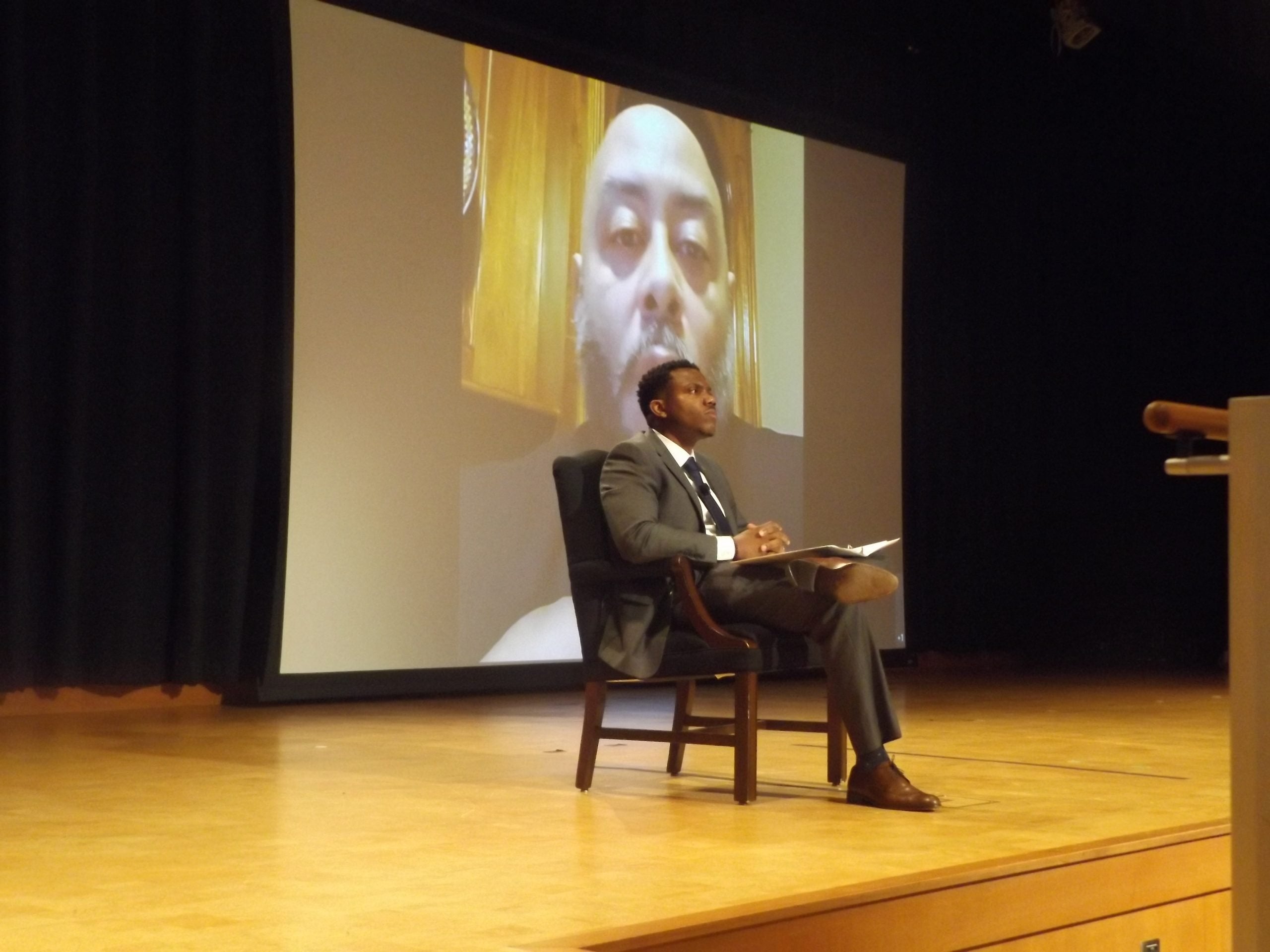Editor’s note: Raymond Santana, along with four other teenagers, spent five years in prison after they were wrongfully convicted of participating in a 1989 rape case. In 2002, convicted murderer and rapist Matias Reyes, admitted to the crime. DNA test results reaffirmed Reyes’s confession, according to The Innocence Project’s website. In 2002, the men were released after their convictions were overturned. “When they See Us” is a Netflix mini-series based on the true story. Santana made a virtual appearance Feb. 18 at Augusta University’s Lee Auditorium.
Raymond Santana was 14 when he was arrested and wrongfully convicted of rape in New York’s Central Park jogger case.
That experience opened his eyes to the fragility of live, he told Augusta University students in a virtual appearance on campus last week.
[adrotate banner=”15″]
Santana credited basketball and education as activities that helped him survive the ordeal. While incarcerated, he obtained a G.E.D. and attended college. He said conversations about the U.S. criminal justice system inspire hope for future change.
“The system needs to go to a more rehabilitative standpoint and not of a punishment standpoint,” he said. “At the end of the day, we have a really big prison population, and a lot of those guys are guaranteed to come back home.”
According to Santana, resolving issues in the system requires contemplating whether America wants to create better criminals or more productive citizens. He said rehabilitation for prisoners requires society to rethink its “push-back” toward educating those who are incarcerated. He believes education, an essential element of rehabilitation, includes educational services, he said.
Santana encouraged Augusta University students to assist in reforming the criminal justice system through attainment of education in multiple fields. He told them to let their passions guide them and ensured them individuals can make a difference without a mass movement. He attributed the lack of reform in the system to the fact that it is run like a money-making business. It is the victims of the system who want to see change, he said. He added that making a difference is not limited to careers in criminal justice.
“There are many layers in the criminal justice system,” he said. “Everybody doesn’t have to be on the front lines. We need social workers, we need advocates, we need everything.”
Santana said it is difficult to forgive the New York prosecutors and police officers who continue to believe in his guilt. Former President Donald Trump campaigned before he was elected against exonerating Santana and the four other youths. Trump even took out an advertisement calling for the death penalty, Santana said.
“Fast forward and this guy is running for president,” he said and added that Trump’s insistence that that the teenagers were guilty was “relentless.” According to Santana, it continued up through the day the state exonerated the five men.
[adrotate banner=”20″]
The ordeal taught Santana the value of living in the moment. Remarried with a blended family, he does not take his life for granted anymore, he said. He hopes to leave a legacy that proves that perseverance pays off when faced with obstacles. He embraces the day his daughter said he was her hero as one of the greatest moments of his life.
“I am living in the moment, and I feel blessed that I can live life pretty full,” he said. “I am just grateful for life.”
Shellie Smitley is a staff writer for The Augusta Press. Reach her at shellie@theaugustapress.com








